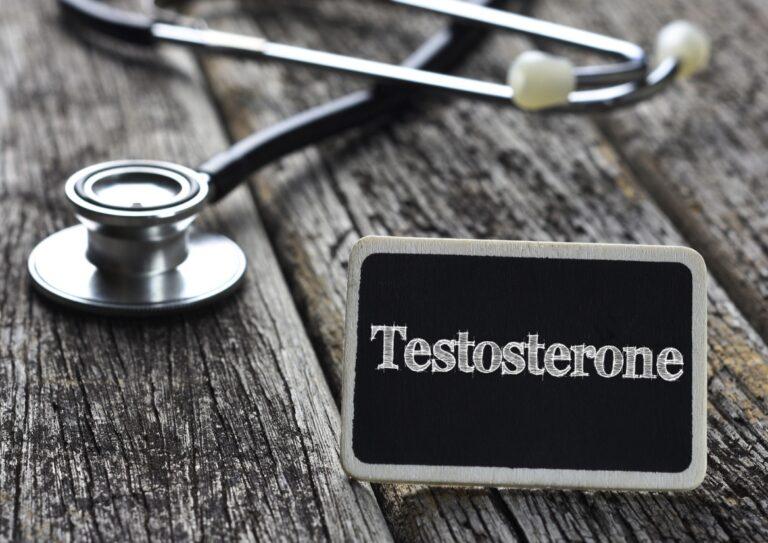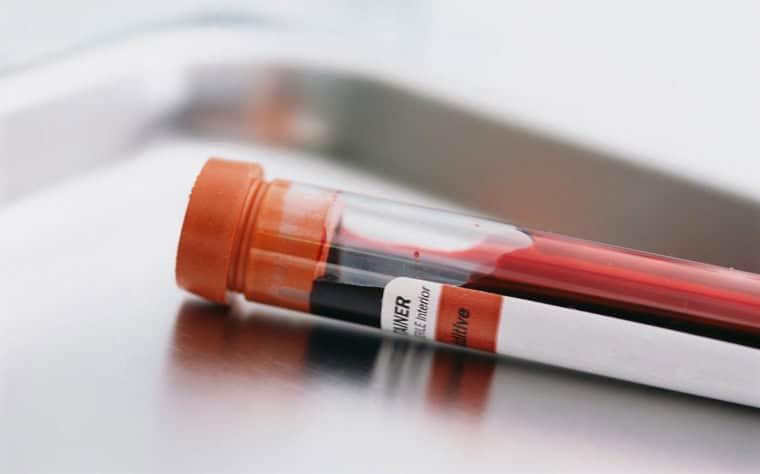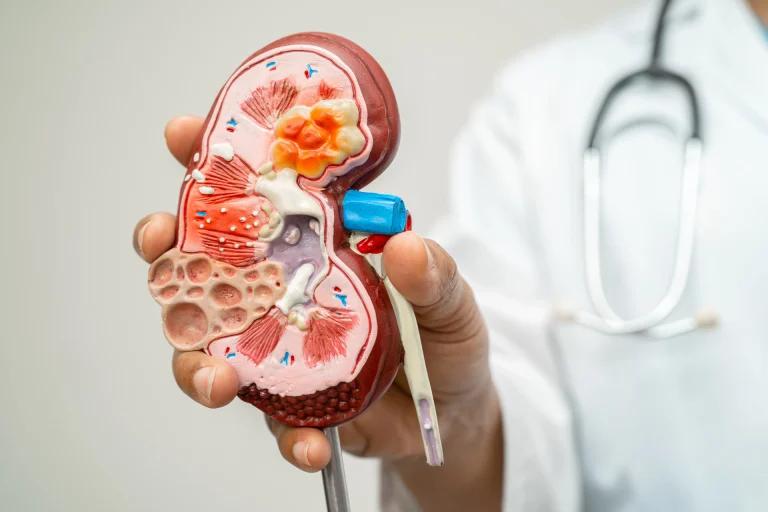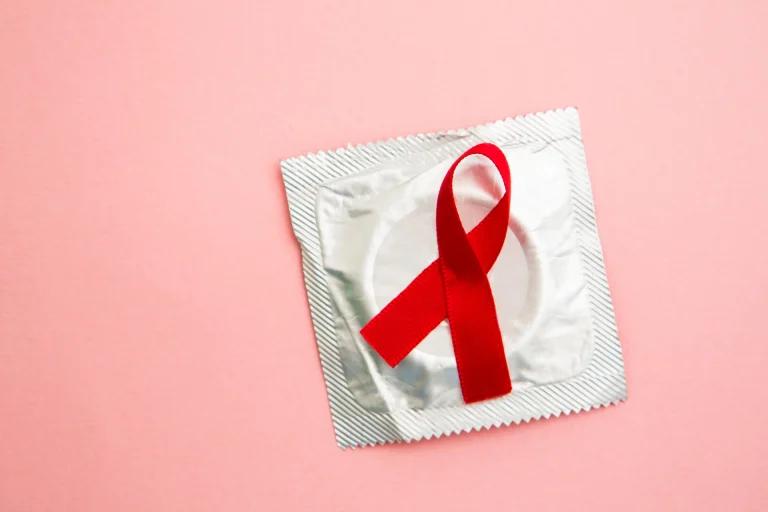
October 15, 2025 (Current Version)
March 28, 2025
Testosterone is important for men. It makes us healthy and happy, it helps us put on muscle, it keeps our sex drive firing and our erections hard.
But maybe you’re worried your testosterone levels are falling? Maybe you’re not feeling quite like you used to and you want to know what your options are?
This is what you need to know.
What is testosterone?
First the science bit. Testosterone is a hormone which is a kind of molecule your body makes to regulate how it works. Both men and women have testosterone, but men’s bodies produce much more, usually seven to eight times as much.
Testosterone is classified as a male sex hormone. In men it regulates the development of male sexual characteristics, like your testicles, sperm production, muscle mass, deep voice and body hair. Testosterone is involved in loads of processes in your body. It also keeps you generally healthy and it helps with your wellbeing.
What is low testosterone?
Low testosterone means your body isn’t producing as much testosterone as it needs to function properly. Testosterone levels vary between men. They can also change as we age, but a normal amount of testosterone in the blood should be 300 to 1,000 nanograms per decilitre. Anything below 300 is considered low. To find out your testosterone levels you’ll need to have a blood test. You should talk to your doctor if you’re interested in this.
What causes low testosterone?
Testosterone levels change naturally in men as we age. They usually rise during puberty then remain high until we hit our 40’s, when they begin to decline, meaning you can expect to experience some of the signs of low testosterone as you age. However low testosterone in younger men can be caused by other factors:
What is the main cause of low testosterone in young men?
There isn’t one main cause of low testosterone. It can vary from man to man. Causes of low testosterone in young men can include:
- Stress/anxiety/depression
- Thyroid problems
- Diabetes
- Drinking too much alcohol
- Obesity
- TB/Sarcoidosis
What are the symptoms of low testosterone in males?
Testosterone is such a vital hormone for men, that a wide range of things can happen if your testosterone drops below normal levels. These low testosterone symptoms can be subtle. There might not be one immediate thing you notice, but it could be a combination of some of the below:
Reduced sex drive
Your desire for sex isn’t just mental, it’s influenced by testosterone too. If your testosterone falls your sex drive (libido) can fall with it too.
Erectile dysfunction
Erectile dysfunction (ED) is when you can’t get or stay erect enough for sex. Testosterone doesn’t just influence your sex drive, it plays a role in erections too as it is involved in the chemical process that helps you get hard. If you have low testosterone you may have problems getting an erection or keeping one.
Bear in mind that low testosterone is one of many possible causes of ED. It can be caused by less serious problems, but also by serious medical conditions. If you have ED you should speak to your doctor to get to the bottom of what’s causing it.
Hair loss
Unlike male pattern baldness, which causes you to lose hair on your head but not usually elsewhere, low testosterone can cause you to lose both the hair on your head, but also body hair too.
Losses in muscle and bone mass
Testosterone helps you build muscle and bone tissue. If your testosterone levels fall you can lose muscle mass and find it harder to put muscle on and your bones can become thinner and less strong.
Fat gain
Great, so not only can you lose muscle, men with low testosterone often gain body fat too. And to really kick you when you’re down you can even develop gynecomastia, which to you and me is enlarged breast tissue in men.
Smaller testicles and less semen
Men with low testosterone levels may notice their testicles getting smaller. Usually less noticeable, you may also produce less semen too.
Fatigue
Men with low testosterone can experience reduced energy levels, even extreme fatigue. If you feel overly tired, even though you’re resting and getting plenty of sleep this could be a sign you have low testosterone.
Mood changes, impaired memory, difficulty sleeping
Because testosterone is involved in so many processes in your body low levels can even influence the way you think and feel. Low testosterone has been associated with higher rates of depression, lack of focus, irritability, memory problems and difficulties falling and staying asleep.
How do you fix low testosterone?
The good news is you’ve got a range of options if you want to understand how to increase testosterone. One of the best places to start is to talk to your doctor as they can assess your situation and advise on which treatments would be best for you. Broadly speaking though, you’ve got two sets of options, medical treatments or natural remedies. Both can be used together of course. You might consider:
Medical treatments for low testosterone
A doctor can prescribe treatments which provide testosterone to your body (testosterone replacement therapy). You should talk to your doctor if you’re interested in these, but they include:
- Gels which contain testosterone
- Testosterone skin patches
- Tablets
- Testosterone injections
- Testosterone pellets which are surgically implanted under the skin
Natural treatments for low testosterone
In addition to medical treatments there are ways you can boost your testosterone levels naturally. They may only provide small increases, but they can be used alongside other treatments. Most are healthy lifestyle changes too, so they can benefit you in a whole range of ways. You can try:
- Losing weight. Reducing your body fat can lead to increases in testosterone levels, particularly if you’re overweight
- Exercise. Getting more exercise can boost testosterone, particularly lifting weights
- Changing what you eat. Certain foods can boost testosterone, particularly foods rich in vitamin D, zinc and magnesium, like tuna, shellfish, eggs, beef, and green vegetables
Having low testosterone can be bad for your health, your well being and your sex life, but being aware of the signs of low testosterone can help you spot it and the earlier you diagnose it the faster you can treat it.
Sources
Medical Disclaimer
NowPatient has taken all reasonable steps to ensure that all material is factually accurate, complete, and current. However, the knowledge and experience of a qualified healthcare professional should always be sought after instead of using the information on this page. Before taking any drug, you should always speak to your doctor or another qualified healthcare provider.
The information provided here about medications is subject to change and is not meant to include all uses, precautions, warnings, directions, drug interactions, allergic reactions, or negative effects. The absence of warnings or other information for a particular medication does not imply that the medication or medication combination is appropriate for all patients or for all possible purposes.










